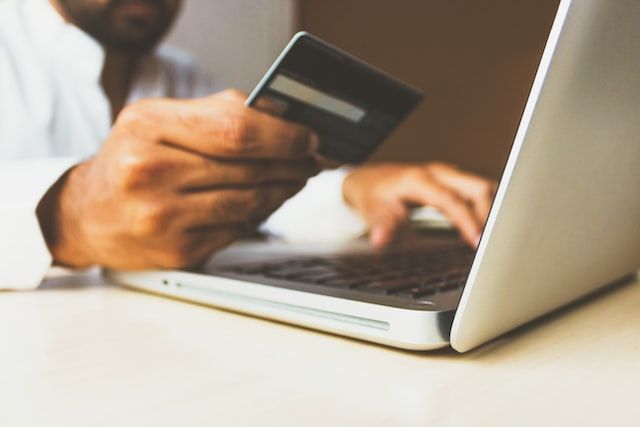This article originally appeared on Money254. Money254 helps consumers and business owners to search, compare and apply for financial products in Kenya.

Did you know that you can positively impact your finances by being deliberate about when, why, on what and how you spend your money?
Fail to do so, and you're looking at late bill payments, saving too little or not saving at all, creating clutter and a host of other financial hurdles.
A general rule of thumb is to have and stick to a budget. However, before you create your budget for items you need and want to spend on, ask yourself these five questions before making any purchase.
But first, let's dive into when an item or activity you're buying or saving up for is a need or a want.
A need is something essential to your well-being despite your financial situation. Examples include housing expenses, school fees, medical expenses, transport costs, and child care (where applicable).
A want is something you desire but is not essential to your well-being. Items you classify as wants are items you can delay or choose not to purchase. Not having a want is not detrimental to your quality of life (though it may temporarily cause some slight discomfort).
For instance, a car is a want. Owning a car has many advantages over taking public transport, using taxis, cycling or walking, but compared to rent, you can do without it.
1. Do I need it or do I want it?
A quick way to be free from the consequences of poor money management is to stick to the essentials and budget for discretionary spending like entertainment or treating yourself to something new.
With the definitions above in mind, the next step is to be honest about your financial situation and money habits. You’ll identify some expenses you can delay. Soon after, you’ll take them off your shopping list once you realise you no longer want said items.
So, before moving on to the other questions, how about a moment to review your recent purchases? Can you identify the needs and wants?
2. Can I borrow it?
Before you buy something, consider how frequently you will use it. You'd be shocked at how much money you can save and how much clutter you can prevent by avoiding not-so-smart purchases.
As a result, if what you need or want to purchase is something you'll only use once or twice a year, to save money, think about borrowing or hiring.
Borrowing repair equipment from a friend or renting a car for a weekend trip, for example, is preferable to purchasing a whole toolkit which can be costly and make it difficult to fulfil your current financial responsibilities.
3. Can I buy it second-hand?
For items you cannot or aren’t comfortable borrowing and can’t buy new, take the time to research how much an item costs. Then you can work out how much you can set aside for the item if bought second-hand (remember to include delivery and any additional fees, if applicable).
- If the second-hand price difference is within your budget;
Ensure that quality is uncompromised. Also, confirm if a return or refund policy exists and if the item is available as advertised.
Remember, you’re always better off saving up over disregarding the fact that buying cheap is expensive when the priority is price over quality.
- If the second-hand price difference is not within your budget;
Be patient. The list of second-hand options goes on and on. There is a gold mine of items in good condition – some are new and sold at bargain prices.
Browse social media marketplaces, swap or barter trade amongst your friends and family for free stuff or at bargain prices. For online research, browse for sales on business websites.
This way, you easily compare the prices of items at different retail outlets. Visit the local mitumba or second-hand stores, and consider online shopping and pop-up sale ads on delivery apps.
Word of advice: Being cheap is not the goal. Instead, look out for promo code offers. Use apps to shop for priority deals access (here’s an example, pick one free item if you shop at any QYZ* before 1 p.m. on 1.11.2022) – to name a few.
4. Is it budgeted for or am I buying this simply because it's on sale?
Many people can agree that they have items that they are almost 100% sure to buy impulsively.
My spending weakness is perfumes, especially the KSh 100 – KSh 300 refill ones. Nowadays, thanks to a realistic monthly budget and brisk walks past perfume-refill stalls, I, more often than not, follow through on my day's spending budget.
I bet one or two of your “spending favourites” have come to mind.
So, before you spend money on any of said spending favourites or anything else, be honest with yourself. Ask yourself if you’re purchasing it because you planned to (budgeted for) or simply because you can and want it (it's on sale).
Remember that budgeting is a golden guideline in financial management that will assist you in categorising your expenditure into needs and wants. In this approach, your budget becomes a useful tool to help you stick to your financial objectives by making it difficult for you to make unplanned purchases.
5. Will this support my financial goals?
Another consideration is how a purchase affects your current and future financial goals. To do so productively, break down this question into the following sub-questions to help determine if a purchase supports your financial goals.
- Will the purchase make your life easier by being a value-add that maximises how you spend your money and other resources, or will it do the opposite?
- Is the item you intend to purchase something you can afford? Assess your investing goals, savings goals, and other financial commitments to see if you can afford the purchase.
Word of advice: If your answer to the above is yes or no, outline how the purchase supports your answer. It further motivates you to stick to your purchasing decisions. If your answer is maybe or "I don't know", bring to mind the definition of a need and want as mentioned. You’d be surprised to find that the purchase is more likely something you can do without, or you can delay.
So, compliment your financial efforts by supporting your financial goals. Ensure that what you purchase positively contributes to the quality of your life – to build up your spending goals rather than derail them.
Wrapping up
Simply asking one or more of these questions before spending is a step to developing good money habits for a rewarding journey towards financial freedom.
At first, it may be hard to have these questions at the back of your mind before spending. However, you'll quickly notice that asking one question leads to other relevant questions for better money management.





